#lucia berlin
Text
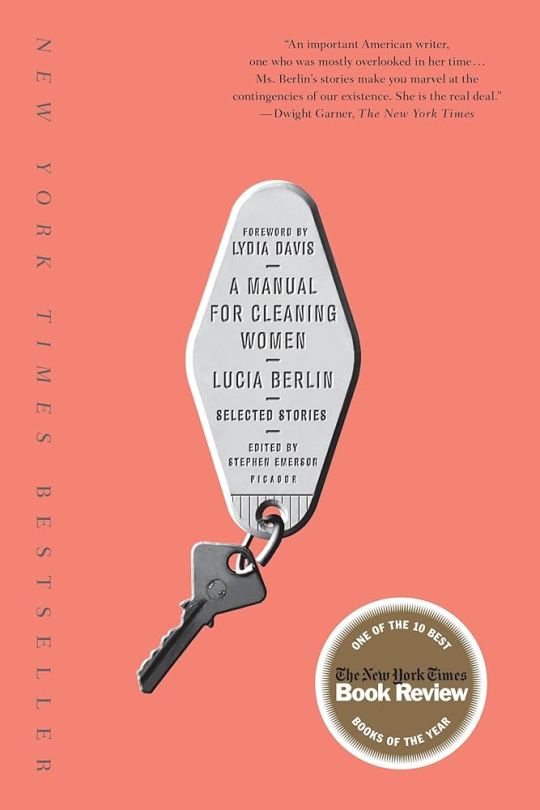
#short story collection#short story collections#a manual for cleaning women#a manual for cleaning women: selected stories#lucia berlin#21st century literature#american literature#english language literature#have you read this short fiction?#book polls#completed polls
7 notes
·
View notes
Text

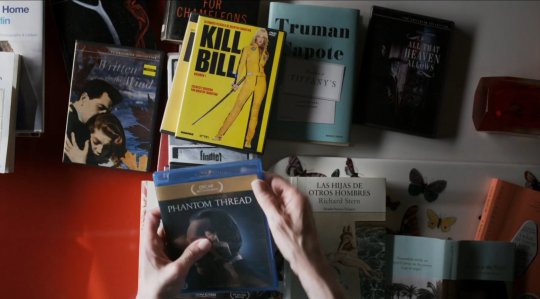

La vox humana (2020) by Pedro Almodóvar
Book title
Sobre los huesos de los muertos (Prowadź swój pług przez kości umarłych in Polish; 2009) by Olga Tokarczuk
Welcome Home: A Memoir with Selected Photographs and Letters (2018) by Lucia Berlin
Music for Chameleons (1980) by Truman Capote
Breakfast at Tiffany’s (1958) by Truman Capote
Las hijas de otros hombres (Other Men's Daughters in English; 1973) by Richard G. Stern
Too Much Happiness (2009) by Alice Munro
Girl (2019) by Edna O’Brien
Tender is the Night (1934) by Francis Scott Fitzgerald
A Manual for Cleaning Women by Lucia Berlin
#american literature#canadian literature#polish literature#Prowadź swój pług przez kości umarłych#olga tokarczuk#sobre los huesos de los muertos#Drive Your Plow Over the Bones of the Dead#welcome home#lucia berlin#music for chameleons#truman capote#breakfast at tiffany's#other men's daughters#richard g. stern#too much happiness#alice munro#tender is the night#francis scott fitzgerald#la vox humana#tilda swinton#pedro almodovar#the human voice#girl#edna o'brien#irish literature
84 notes
·
View notes
Quote
Hay un verso que dice (más o menos): «Hogar es donde, si no tienes ningún otro sitio adonde ir, tienen que acogerte».
Bienvenida a casa, Lucia Berlin.
#bienvenida a casa#lucia berlin#read 2023#frases libros#frases literatura#frases literarias#libros#literatura#leo autoras#verso#hogar
34 notes
·
View notes
Photo

Lucia Berlin, from “A Manual for Cleaning Women”
102 notes
·
View notes
Text
Everything good or bad that has occurred in my life has been predictable and inevitable, especially the choices and actions that have made sure I am now utterly alone.
— Lucia Berlin, “Homing”. From A Manual for Cleaning Women (Picador, 2015)
6 notes
·
View notes
Note
If it's not an imposition I'd be really interested to hear about your other favourite authors? I found Hilary Mantel (and possibly a few others?) through your Tumblr + I know you have great taste
Oh wow, thanks! I'm still recovering from my surgery, and today the pain killers seem to work a bit less well than yesterday, so I can really use some cheering up!
My current favourites, in no particular order:
Susanna Clarke. Is there anything she can't do? Jonathan Strange and Mr. Norell was such a doorstopper, and Piranesi is the height of narrative economy. I'm still utterly enchanted. It's a hymn to scientific inquiry without ever playing it out against myth, art, faith and ritual, a sort of Anti-Robinsonade - here too, we have someone torn out of his own world, having to survive in strange surroundings, entirely left to their own devices, but while Robinson aims to conquer, Piranesi just wants to understand/connect. One of the most likeable protagonists I've encountered in all of literature in quite a while. And the vibes are impeccable. I think Susanna Clarke is always so good at setting the scene, she has a knack for killer imagery, and always hits the right note with the prose style. It's never just style for its own sake, it's always in service of getting you in the right frame of mind for the story.
Lucia Berlin. Wrote mostly short stories with an autobiographical bent. And what a life she had! Very adventurous, upwardly and downwardly socially and geographically mobile, a true bohemian. Reading Lucia Berlin always makes me feel like I need to travel more (definitely) and get some divorces (a bit). (What it actually made me do, was go back into teaching. Lucia Berlin had a lot of jobs - one of her short story collections is called A Manual for Cleaning Women, and one of those jobs was teaching). Her life was often hard (traumatic childhood, dysfunctional parents, sexual assaults, addiction, health problems…), at times brutal - I mean, one thing reading her definitely didn't inspire in me is any curiosity about drugs - at times glamorous and exhilarating, sure, but the lows are very low. She has so many awful encounters and yet never closes herself off to connection, completely clear-eyed about the pain it might bring. Even when she takes you to the depths of despair, she never numbs to her surroundings; she has an eye for the beauty in hell.
Shirly Jackson. I'm not usually a great reader of horror, but I will always make an exception for Shirly Jackson. Another great one for narrative economy. Maximal emotional punch for minimal word count. Great at exposing the blood curdling menace in convention. Honestly, I don't think I could stand it, if I had more of an inclination towards social anxiety, but even so, I think she'll hit anyone who's ever ended up on the wrong side of a group dynamic, and who hasn't? At times deceptively charming, delightfully excentric, cosily conventional, strangely seductive, to better set you up for betrayal, guaranteed to haunt you, long after you've closed the book.
Marlen Haushofer. Maybe I am a bit of a reader of horror after all? It's a fairly similar sort of horror too - the slow poison of corruption through civilization - but usually without explicit supernatural elements (the exception being The Wall, probably her most famous novel anyway). I discovered her as a kid - she also wrote quite a bit for children - and then got majorily back into her during the lockdowns, when she seemed to me like the writer of the hour. I wrote about that at some length here.
Jennifer Egan. She always does something that interests me. Maybe it's a bit of formal metafictional playfulness - I thought the powerpoint chapter in A Visit from the Goon Squad was actually the most moving chapter, definitely not just a gimmick to me (but maybe the sibling dynamic just hits a button for me) - maybe it's just her choice of topic. Look at Me is a downright visionary novel about the rise of influencers on social media, written before Facebook and Insta and the costs and benefits of erotic capital, something which I of course would only know from books and therefore find reasonably fascinating (also a bit about terrorism, written before 9/11, but I found that sublot less compelling); Manhattan Beach is about the first female diver at the Brooklyn Naval Ward, getting drawin into the New York demi-monde while investigating the disappearance of her father during World War II. She's sometimes criticized for writing a bit too much with an eye to effect (the metafictional stuff can be read as pretentious; Manhattan Beach is going for Grande Cinema), but I like that about her. I think you can alway count on Jennifer Egan to find an illuminating angle.
George Eliot. I usually don't have strong opinions about shipping, but "Dorothea/ Ladislaw OTP" is one of the topics I could improvise an hour-long lecture on at the slightest provocation. It's also why I have eternal beef with Henry James, who apparently went on record claiming that Middlemarch would have been a better novel if Dorothea had ended up with Lydgate. (Can you imagine? How hard can anyone miss the point? Might as well say Peggy should have ended up with Don.) I also don't usally worry much about spoilers, because I'm not generally in it for the plot twists. But George Eliot is a case where I really make a point of going in unspoilt. I think she's just the best at leading her characters towards genuinely difficult choices, and even if it's quite clear, what the right choice would be, making you quite unsure if the character can make it, or if it came to that, if you could. My one quibble with her is that I think she has a very weird idea of what makes one suited for a career in politics, but maybe I'm just too jaded.
George R.R. Martin. This started out as an ASOIAF-fanblog; it would be weird not to mention him. It's also a bit weird to mention him though - there was a period in my life when I was positively obsessed with ASOIAF, true, but I feel zero inclination to read anything else by George R.R. Martin. Not because he's a bad writer or because I resent him for not finishing the series - I clearly think he's highly skilled; I could not put up with subpar prose over so many pages, and I can live with unfinished work - it's just not usually my genre, and I feel that the special circumstance that contributed to my ASOIAF-obsession cannot be repeated. First, the series got some hype when there was talk of a TV-show, and I actually sometimes like jumping on a bandwagon. I just rarely do, because they're usually not my speed. But this one turned out to be, and I was excited at an opportunity to join the water-cooler conversation. And then I kinda got in too deep, because I was just working on my second thesis, and was desperately procrastinating.
This probably sounds like me being overly defensive. It's hard nowadays not to feel a bit like a sucker as an ASOIAF-fan. We know there's not much of a chance Martin will ever finish the series, and we know how the show turned out. No one has much sympathy for the disappointment - the general tenor seems to be: What did you expect? It was always this stupid. I agree that there's much I dislike about the show that's actually already there in the novels (eg. gratituous sexual violence, half-heartedly rationalized by the pseudo-historicity) and I won't defend that.
But let me go on record here, I really don't think it was always this stupid. It had interesting things to say about chivalry, honor, different leadership styles, forms of social organisation, family dysfunction, dealing with trauma, propaganda, the power of narratives, institutional failure, collective action, risk management, the cost of lies. It had multi-dimensional, psychologically plausible, dynamic characters. It had tons of forshadowing, and carefully constructed set-ups, and well-executed pay-offs. It had the most shocking twists, that still felt inevitable. And I think Martin has a really good ear for dialogue - eg. he has more than one way to make a character sound witty (something writers of witty characters often seem to struggle with; everyone just ends up the same kind of snarky, which quickly grates on me) - eg.Tyrion's wit is different from Olennas, and even Stannis has a blink-and-you-miss it dry sort of wit. Martin also has that Dickensian knack for distinguishing characters through speech patterns and catch phrases, which is a bit gimmicky, but hey, it works. And you need all the tricks at your disposal with such a huge cast. He was (maybe intermittently still is) trying to do something very ambitious, and I will always admire him for that, even if he likely never pulls it off.
#susanna clarke#lucia berlin#shirley jackson#marlen haushofer#jennifer egan#george eliot#george rr martin#roseblight
11 notes
·
View notes
Photo
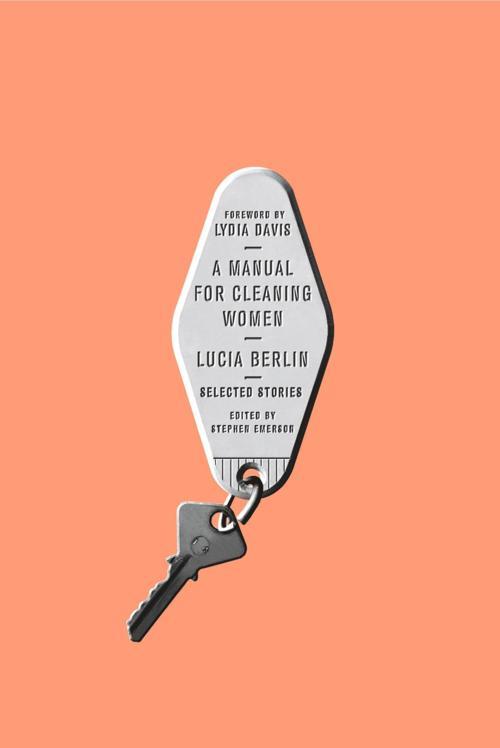

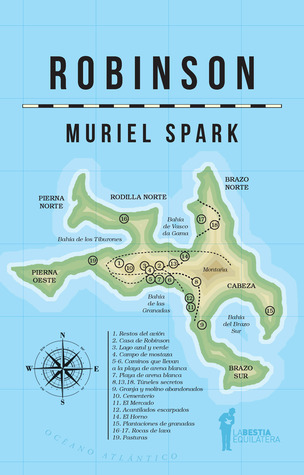




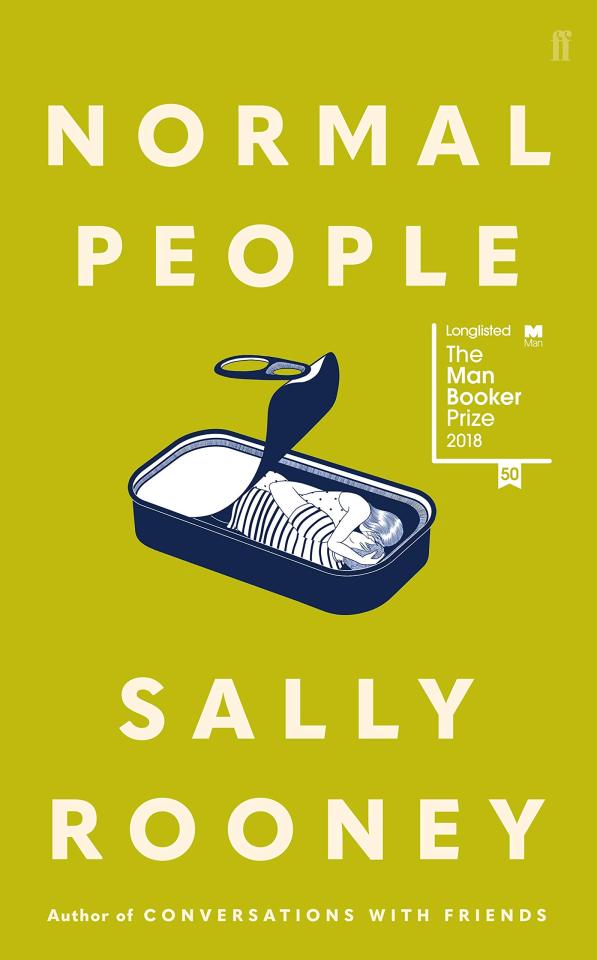
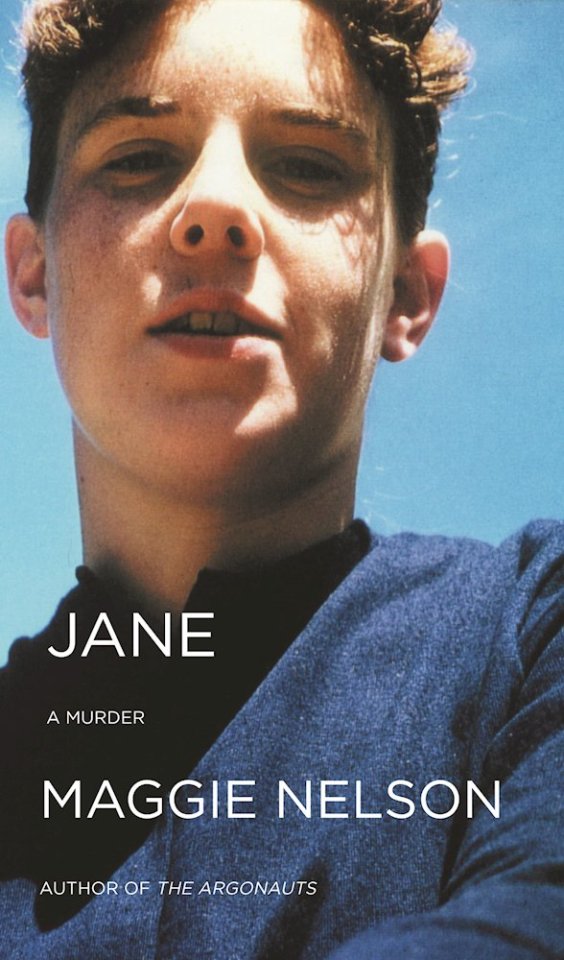

Some Memorable Reading from 2019
Lucia Berlin, A Manual for Cleaning Women (2015, Farrar, Straus and Giroux)
Yūko Tsushima, Territory of Light (1979, Farrar, Straus and Giroux)
Muriel Spark, Robinson (1958, Macmillan)
Maud Hart Lovelace, Betsy’s Wedding (1955, Thomas Y. Crowell Co.)
John Wyndham, Chocky (1968, Michael Joseph)
Tillie Walden, On a Sunbeam (2016, First Second)
Denis Johnson, The Stars at Noon (1986, Alfred A. Knopf)
Sally Rooney, Normal People (2018, Faber & Faber)
Maggie Nelson, Jane: A Murder (2005, Soft Skull Press)
Ben Lerner, The Topeka School (2019, Farrar, Straus and Giroux)
#Lucia Berlin#Yuko Tsushima#Muriel Spark#Maud Hart Lovelace#John Wyndham#Tillie Walden#Denis Johnson#Sally Rooney#Maggie Nelson#Ben Lerner#Yūko Tsushima#EOY
3 notes
·
View notes
Text
I have mixed feelings about this because on one hand I think A manual for cleaning women is perfect for Almodovar, I really enjoyed the book and I think it'll will work really well in his style (and I love Almodovar). I'm less enthused about Cate Blanchett, I feel like she's a little too cold and polished for the role. Plus it feels almost wrong to imagine an Almodovar movie in english
2 notes
·
View notes
Text
¿Y si realmente hubiera ocurrido, el terremoto? Sé muy bien lo que habría pasado. Ese es el problema con las especulaciones. Tarde o temprano tropiezas con un escollo. No habría podido quedarme en Patagonia. Habría acabado en Amarillo, Texas. Planicies interminables y silos y cielo y rastrojos a merced del viento, ni una montaña a la vista. Viviendo con mi tío David y mi tía Harriet y mi bisabuela Grey.
Me habrían considerado un problema. Una cruz con la que cargar. Ellos siempre se quejarían de mis «llamadas de atención», que para el terapeuta serían «llamadas de socorro». Después de salir del correccional de menores no pasaría mucho tiempo antes de que me fugara con un prospector de paso por la ciudad, camino a Montana, y ¿pueden creerlo? Mi vida habría acabado exactamente igual que ahora, bajo las rocas calizas de la cresta Dakota, con los cuervos.
1 note
·
View note
Text
Her şeye rağmen var olmak
Klasik bir hikâye benimki, araba kullanmayı hiç sevemedim, metroda, trende, otobüste geçer günümün önemli bir bölümü. Bıçkın şoförler, arka koltukta hararetle maç muhabbeti yapanlar, uyuyor numarası yapıp kendine yer vermeyen delikanlıya uzun uzun, delici bakışlarıyla bakan teyzeler, mendil satıcısı iki büklüm kadınlar, Suriyeli dilenci çocuklar, çoşkulu müzisyenler… Kakafonik, kalabalık ama…

View On WordPress
#Arabalı Vapur#Arap Turistler#Öteki olmak#Üsküdar Adliyesi#Bakırköy Taksim DOlmuşları#Briç Kursu#Deli Duman#Işın Güner Tuzcular#Kirazlı Metrosu#Lucia Berlin#Marmaray#Neyya#Osman Hamdi Bey#otobüs söförü#puf ceket#Salı Pazarı İskelesi#Toplu Taşıma#yabancı
0 notes
Text
On Generous Writing
Photo by Ben White on Unsplash
Life never ceases to be difficult, to paraphrase Rilke. Amidst its slings and arrows, there is often little to comfort and guide.
Without generous writers, there would be almost nothing.
Among recent difficulties faced by myself, or someone I love: bereavement, major surgery, significant medical diagnoses, divorce, conflict with parents, conflict with children,…

View On WordPress
#Abigail Thomas#autofiction#books#Cila Warncke#fiction#Heather Havrilesky#Jeanette Winterson#Jessica Bruder#Kat Lister#Lucia Berlin#mental health#women&039;s writing#writers#writing#Yaa Gyasi
0 notes
Text
so glad the #coquette #girlblogging #lanavinyl girlies haven't discovered lucia berlin yet... it is enough that they post about my woman joan didion as if she were either just a fashion role model or someone whose books made nice complements to an outfit
1 note
·
View note
Quote
Leí un pasaje donde uno de los personajes de Cervantes, en un manicomio, dice que puede hacer que llueva cuando le plazca. Entendí en ese momento que los escritores eran capaces de lograr todo lo que se propusieran.
Bienvenida a casa, Lucia Berlin.
#bienvenida a casa#lucia berlin#read 2023#frases libros#frases literatura#frases literarias#libros#literatura#Cervantes#escritores#leo autoras
29 notes
·
View notes
Photo
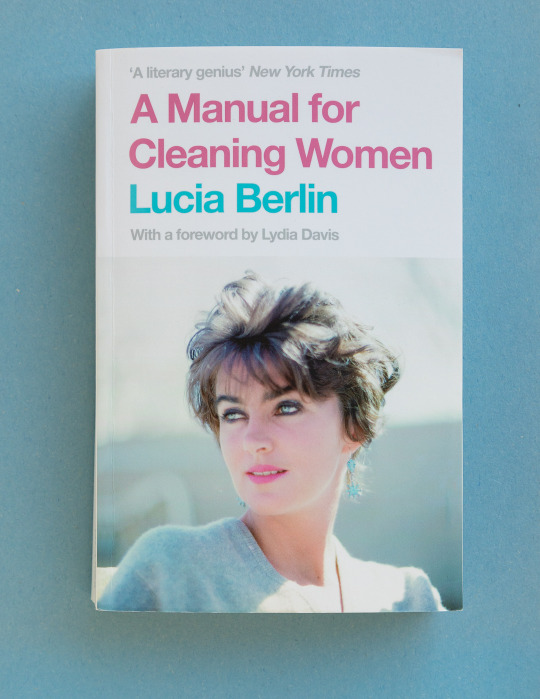
A Manual for Cleaning Women – Lucia Berlin
7.3.2023
I would like to have read these in the slim collections they were originally published in. The stories are all wonderful, but presented all together there’s a little too much subject repetition, making you focus on the writer more than the characters, (although, as the intro highlights, you never really can pin down exactly who Berlin is, even her characters admit to bending the truth of the thing.) I’ve been reading these on and off for a few months, Bukowski too, which leads to a pretty wet bedside table – but Berlin’s melancholy is brighter, out in the world and interacting with people, rather than holed up in Bukowski’s bedroom with the curtains drawn.
#Lucia Berlin#A Manual for Cleaning Women#book#books#short stories#fiction#booklr#bookblr#reading list#bukowski#carver#book pile#read#reading
0 notes
Text
Sighs, the rhythms of our heartbeats, contractions of childbirth, orgasms, all flow into time just as pendulum clocks placed next to one another soon beat in unison. Fireflies in a tree flash on and off as one. The sun comes up and it goes down. The moon waxes and wanes and usually the morning paper hits the porch at six thirty-five.
Time stops when someone dies. Of course it stops for them, maybe, but for the mourners time runs amok. Death comes too soon. It forgets the tides, the days growing longer and shorter, the moon. It rips up the calendar. You aren't at your desk or on the subway or fixing dinner for the children. You're reading. People in a surgery waiting room, or shivering outside on a balcony smoking all night long. You stare into space, sitting in your childhood bedroom with the globe on the desk. Persia, the Belgian Congo. The bad part is that when you return to your ordinary life all the routines, the marks of the day, seem like senseless lies. All is suspect, a trick to lull us, to rock us back into the placid relentlessness of time.
— Lucia Berlin, "Homing". From A Manual for Cleaning Women (Picador, 2015)
5 notes
·
View notes


